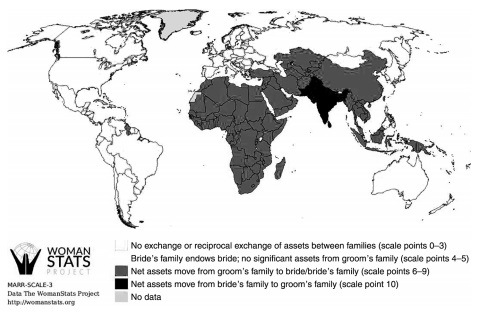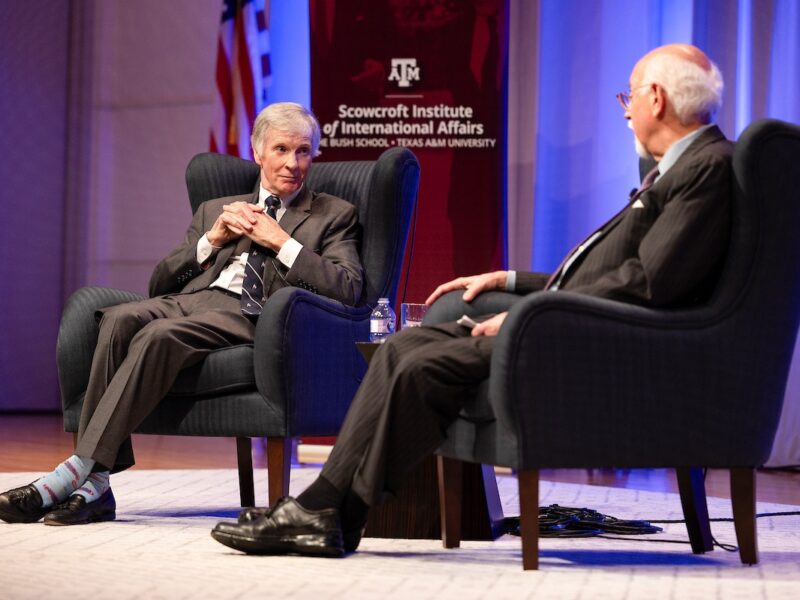
In many western countries, a young woman’s opportunity for marriage depended on the dowry — the property or money brought by a bride to her husband and his family. Dowries were an essential element of the marriage contract, and often the primary cause for the marriage itself. For example, in the 19th and early 20th century, many American dowries crossed the ocean to save landed estates in Britain and Europe.
“Brideprice” is the reverse of that custom: a potential groom pays the bride’s family—ostensibly “repaying” the costs of raising her. Widespread in several African nations as well as the Middle East and Asia, the custom of brideprice has been shown to increase violence, rebellion and even terrorism recruitment, says Valerie Hudson, professor in the International Affairs Department at the Bush School of Government and Public Service.
at the Bush School of Government and Public Service at Texas A&M University.
Hudson and Hilary Matfess, doctoral student at Yale University’s Department of Political Science, have co-authored an article that explores the linkages between the custom of brideprice and the effects it has on young men in some societies. The lead article in the summer 2017 edition of International Security demonstrates how young men’s inability to marry due to lack of funds for brideprice affects their level of grievance, their standing in the community, and has led to violence and even recruitment by anti-government and terrorist groups.
“It’s important to look at all factors affecting a nation’s security,” said Hudson. “Our research demonstrates that brideprice is essentially a regressive tax and disproportionally affects groups of young men from which violent groups can more easily recruit. With limited or nonexistent job options and no income, they cannot get a wife and be regarded as so-called “real men” in their society. For many, the only way to accumulate the assets needed to marry may be looting, raiding, or joining a rebel or terrorist group.”

Overall, roughly 75 percent of the world’s population lives in regions where this practiceis prevalent, said Hudson, including many areas where the United States has security interests.
While poverty, deprivation and peer group pressure are generally accepted reasons young men take up arms and turn to violence, Hudson’s and Matfess’ research demonstrates that an inability to “afford” a wife in a society where marriage is the maker of full adult manhood can be a significant factor in the decision to join in rebellion or terrorism.
Hudson and Matfess conclude that “marriage market obstruction” and other male/female relationships should be considered in any comprehensive security analysis of conflict, since they can destabilize nations by incentivizing violence and facilitating recruitment into insurgent groups.
Read Hudson and Matfess’ article, “In Plain Sight: The Neglected Linkage Between Brideprice and Violent Conflict.”
###
Media contact: Susan L. Robertson, MBA, Director, Communications and External Relations, Bush School of Government and Public Service, Texas A&M, University, 979.862.8845, srobertson@tamu.edu




